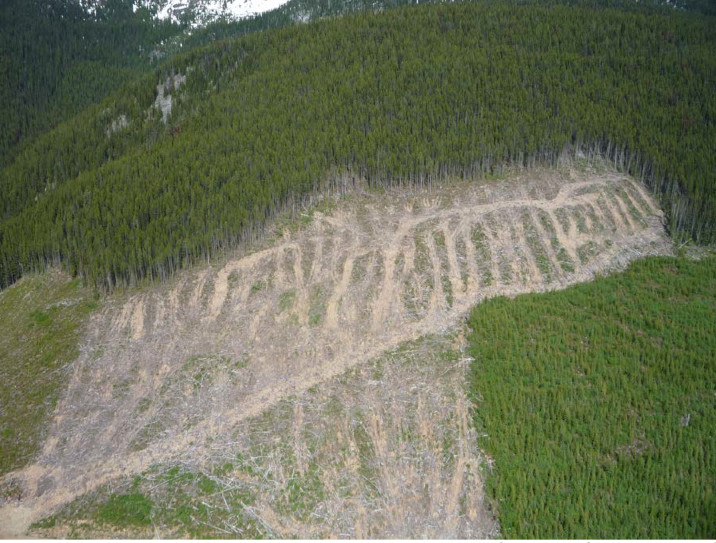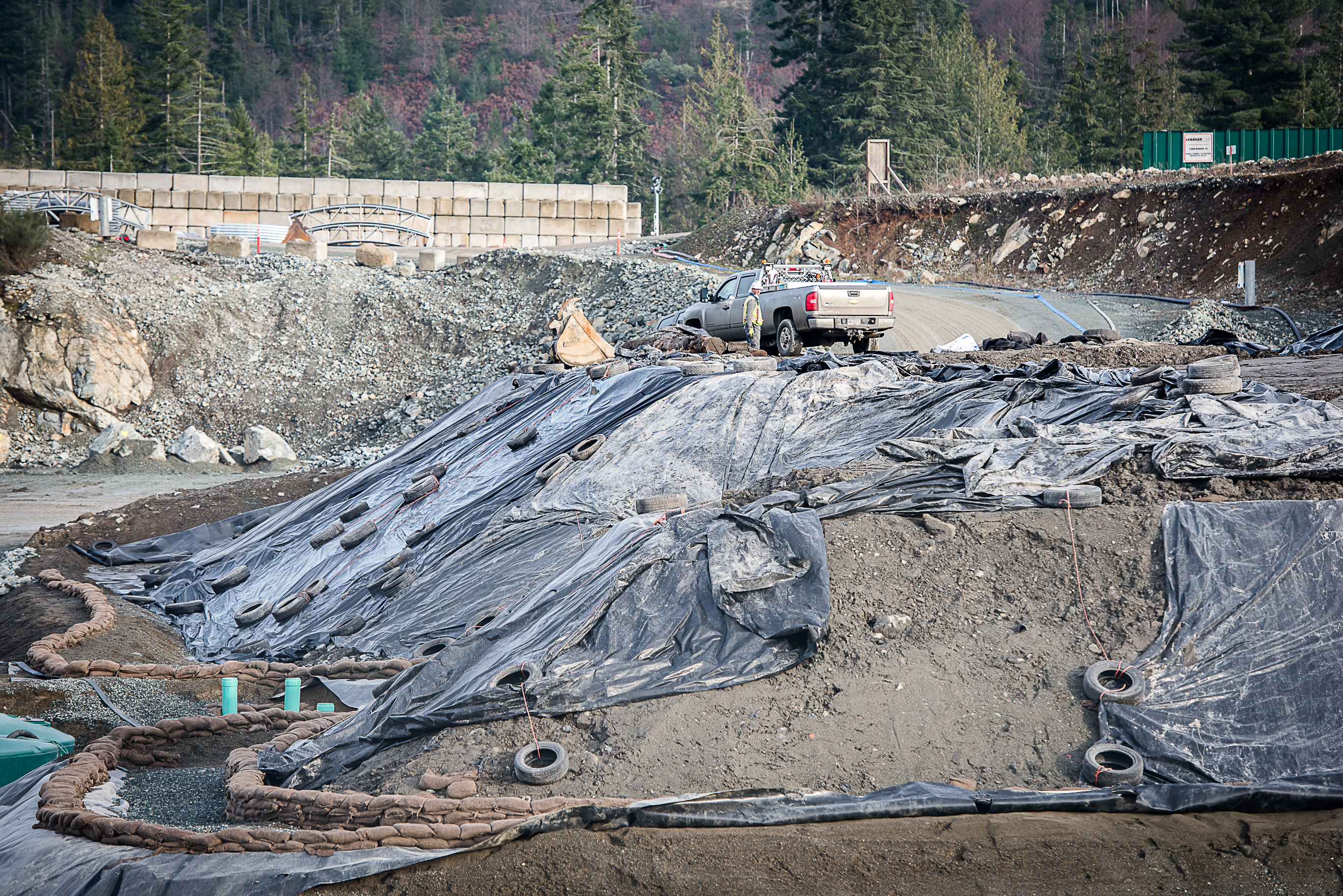[Editor’s note: Dec. 1, 2017. The provincial government announced a public consultation on “professional reliance” in managing natural resources Friday.
The approach, introduced a decade ago by the Liberal government, lets companies hire consultants to approve their plans rather than subject them to review by government scientists and engineers.
The practice has been criticized by independent watchdogs including the province’s Auditor General and Ombudsperson. Critics maintain the process involves fundamental conflicts of interest as consultants prepare reports on environmental and engineering risks for resource companies they rely on for future contracts.
The consultation form can be found here.
The Tyee is reprinting this Andrew Nikiforuk report from earlier in the year to encourage informed participation.]
You’ve probably never heard of a regulatory fad called “professional reliance.”
Yet this decade-old experiment with environmental regulation now dominates every aspect of resource development in the province, including contaminated landfill sites, forest assessments, dam safety and shale gas development.
First introduced nearly a decade ago, the practice now dominates 27 different regulatory regimes in the province.
The B.C. government defines the term as “the practice of accepting and relying upon the decisions and advice of professionals who accept responsibility and can be held accountable for the decisions they make and the advice they give.”
To support PR, as it sometimes called, the B.C. government streamlined regulations, reduced the size of the public service, and gave industry proponents a greater role in monitoring their compliance with environmental rules.
The government said the scheme would save money and result in better governance.
But a growing body of critics, including B.C.’s Auditor General, the B.C. Ombudsperson, and the University of Victoria’s Environmental Law Centre say that’s not what is happening in practice.
They say professional reliance has given industry too much control over public lands without addressing conflicts of interest. They also say it amounts to deregulation and less government oversight.
In particular they are concerned about conflicts of interest. Given that most engineers or foresters are employed or retained by an industrial proponent, an inherent potential for conflict arises between duties to the client and the public interest in environmental protection.
Take, for example, the three-year-old controversy over contaminated landfill site at Shawnigan Lake on Vancouver Island.
Earlier this month Mary Polak, the environment minister, suspended the permit for the landfill due to persistent rule breaking by the operator and off-site water contamination after years of protests and legal action by local governments and citizens.
The problems began in 2013 when Cobble Hill Holdings asked professionals at Active Earth Engineering to do a technical report on whether or not filling a quarry with contaminated soil from around Vancouver Island was an environmentally sound project.
In their environmental assessment, Active Engineering gave the project a thumbs up, and assured the government that the quarry sat on a sound rock basement that wouldn’t leak.
But a string of experts hired by local government disagreed and warned that the location was a bad one due to fractured bedrock. Leaks would contaminate aquifers under the site and thereby pollute the headwaters of a watershed that provide drinking water for 12,000 people, they found.
But the Ministry of Environment only listened to the information given to them by the proponent and their qualified experts, says Sonia Furstenau, regional director of the Cowichan Valley district leading the fight against the Shawnigan Lake landfill project.
“Under the model of PR, they couldn’t disagree with the findings. They only reviewed it,” Furstenau said.
But the professionals writing the technical assessment report had also signed a secret agreement with Cobble Hill Holdings that gave them a 50 per cent interest in the project. This conflict of interest was never disclosed to the Environmental Appeal Board.
A damning judicial review of the whole process, released last month, concluded that conflict of interest biased the decision-making process and undermined the integrity of the approval process set out in the province’s Environmental Management Act.
Justice Robert Sewell added that “An important element in assessing any technical or scientific opinion is knowing whether the professional producing the opinion has any reason to be biased. The existence of a financial benefit to the Qualified Professional from a particular outcome is a clear example of a reasonable apprehension of bias in the person preparing the opinion.”
To Furstenau, the practice of professional reliance not only undermined the approval process for the landfill but is now “creating a mess throughout the province.”
“It is creating huge mistrust in the process. Whenever a government hands over the environmental assessment to so-called qualified professionals hired by industry, it ultimately results in a situation where industry polices itself. It is a race to the bottom.”
But that’s not the only problem. An extensive 2015 review of professional reliance by the University of Victoria’s Environmental Law Centre found that “professional reliance” was undermining the public interest.
After interviewing scores of professionals including foresters and engineers, Mark Haddock, author of the report and now counsel for the Forest Practices Board, concluded that PR frequently “became a rationale for less scrutiny of material submitted by proponents by government.”
Professionals told Haddock that the practice resulted in conflicts of interests that government often ignored and encouraged an erosion of expertise in the public service.

Professionals also noted that the poorly policed practice of relying on professionals working for industry ultimately reduced public involvement in resource management resulting in greater land use conflicts, such as the protests around Shawnigan Lake.
The report concluded “that much of B.C.’s deregulation goes too far in handing over what are essentially matters of public interest to those employed by industry. Proponents should not be decision makers for matters involving the weighing and balancing of multiple, often competing, environmental and societal values.”
Added the report: “This raises irresolvable conflicts of interest and a lack of democratic accountability for many resource management decisions.”
Haddock made a number of recommendations to correct over-reliance on information provided by professionals working for industry, including better monitoring, compliance and enforcement as well as specific criteria for the government to use to decide when professional reliance was and was not in the public interest — any activity that posed moderate to high environmental and safety risks.
With the exception of mining, said Haddock, the government hasn’t addressed any of the problems the 2015 report identified.
“At one level there is always going to be a need for PR because the government is going to rely on information from proponents, but at another level it can been seen as over-reliance,” Haddock told The Tyee. “There are certain things the public expects the government to do as owner of the resource.”
Almost every major environmental controversy in the province now seems to have some tie-in to “professional reliance.”
The failure of a 40-metre high tailings dam at the Mount Polley copper mine in the B.C. interior, which caused widespread environmental damage, illuminated other problems with professional reliance.
In a 2016 report on regulation of the province’s mining sector following the disaster, B.C. Auditor General Carol Bellringer found “almost every one of our expectations for a robust compliance and enforcement program within the Ministry of Energy and Mines (MEM) and the Ministry of Environment (MOE) were not met.”
In particular Bellringer focused on “over reliance on qualified professionals” as a key problem. “It is not MEM’s practice to carry out its own technical review (or to oversee an independent technical review) to confirm that tailings dams are built in accordance with the design.”
The government replied to the criticism by arguing that the auditor’s “concern about over-reliance on qualified professionals is a criticism of professional bodies’ ability to regulate their professions.”
But the auditor highlighted many of the same problems documented in the Environmental Law Centre report: “As professional reliance has grown, we expected that MEM, at a minimum, would be ensuring that reports required under permits were received and reviewed by the ministry in a timely manner, and would put into place policies and guidance about working with qualified professionals. Overall, MEM has not established any policy regarding qualified professionals.”
In addition, the ministry “has not established guidance for its staff regarding what the ministry considers an appropriate level of oversight of the professionals employed by mining companies.”
The Forest Practices Board has heard many of the same complaints: “The Board frequently hears concerns that professional reliance is not meeting expectations. The concerns come not just from the public, but from professionals themselves,” says a 2013 bulletin.
“Where objectives are not clear, or where competing interests and values are in play, it is not realistic to expect professionals working for licensees to define the public interest.”
The effective management of riparian areas to protect fish habitat has also fallen under the domain of PR.
In 2014, B.C.’s Office of the Ombudsperson found the practice wasn’t striking a balance in the public interest.
“The potential for administrative unfairness arises when there is inadequate government oversight of private professionals and project proponents or the level of public accountability for their actions and decisions falls below acceptable standards,” said the report.
The Ombudsperson found that the system did not hold professionals who conducted riparian assessments to an enforceable standard of professional conduct.
The Professional Employees Association (PEA), which represents more than 1,000 licensed professionals such as engineers working in the public service, has also raised alarm bells about professional reliance.
At the same time the government introduced the practice, it has decreased the number of licensed professionals employed in the Ministry of Environment by 31 per cent since 2009. Over the same period, professional staff at the Ministry of Energy and Mines has experienced a 21 per cent decrease.
As the number of qualified staff needed to review information submitted by other industry hired professionals has declined, the association also found “that the ability of government science officers to review industry proposals” was “hampered by policies that give proponents the legal authority to withhold information.”
In the end public forests, fisheries, mines and landfills all suffered from ineffective oversight, it found.
In 2006, a Professional Reliance Task Force warned about these very challenges.
It is not a “given that the public has, or will continue to have, sufficient confidence to support the professional reliance paradigm in the long term.” ![]()
Read more: BC Politics, Environment
















Tyee Commenting Guidelines
Comments that violate guidelines risk being deleted, and violations may result in a temporary or permanent user ban. Maintain the spirit of good conversation to stay in the discussion.
*Please note The Tyee is not a forum for spreading misinformation about COVID-19, denying its existence or minimizing its risk to public health.
Do:
Do not: